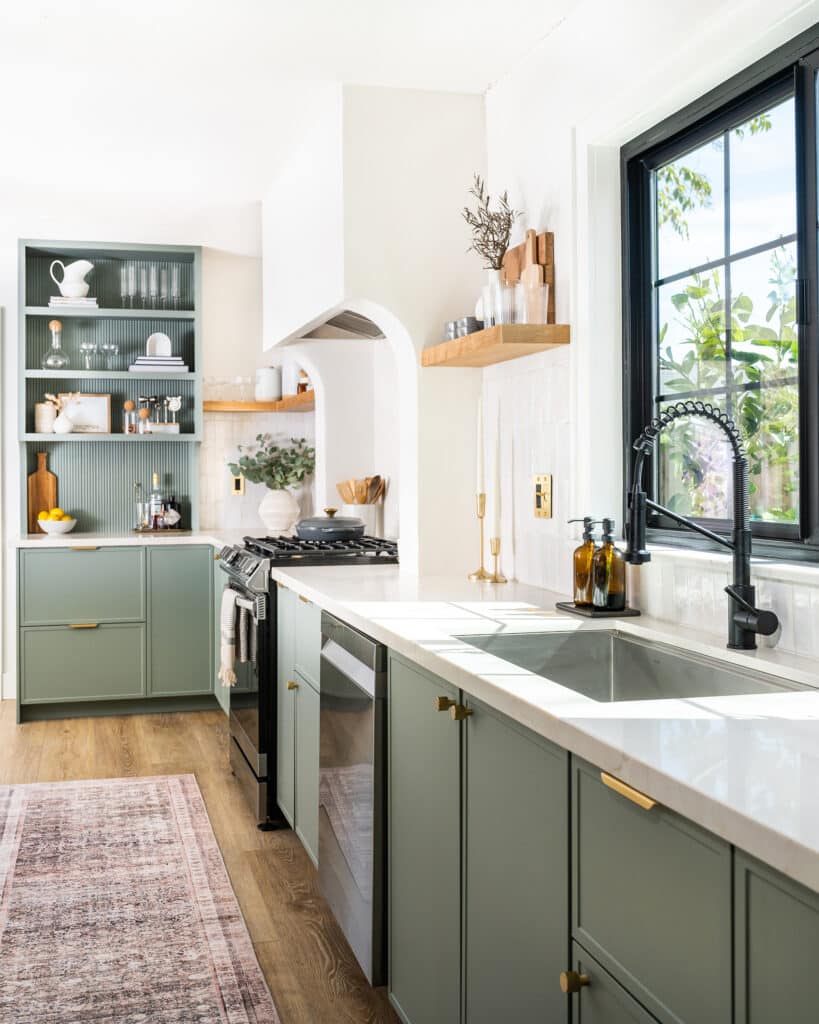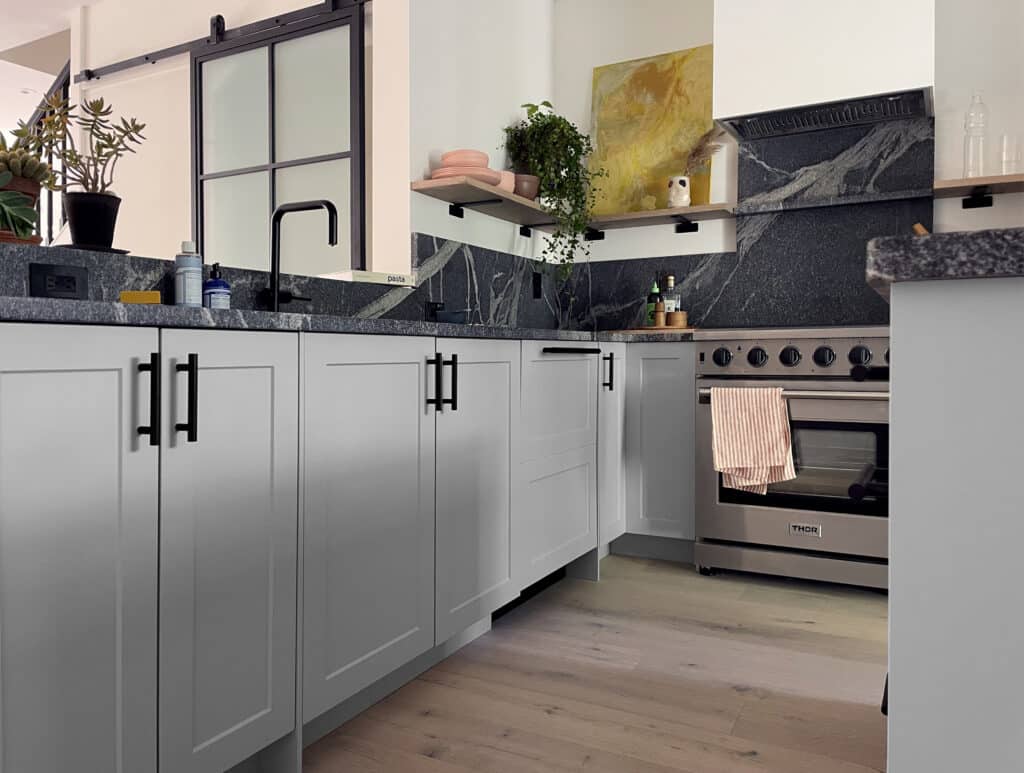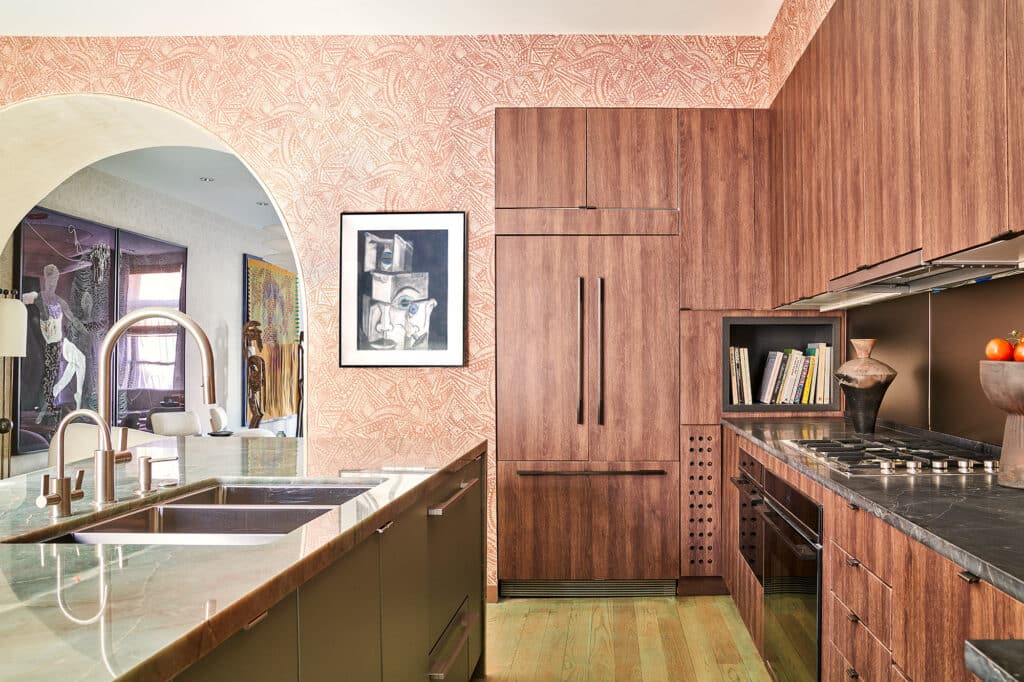You may have a Pinterest board filled with inspiration, but when it comes to renovating a kitchen, there’s another important aspect to tackle from the get-go: finances.
Can you afford your dream marble countertops? What about that six-burner range you’ve been eyeing? How much will your kitchen renovation actually cost? What are your financing options?
To find answers to all these questions (and more), you need to ask yourself the following six questions, says Crystal Denmon. The Los Angeles-based rehabber and educator, who has been flipping homes in Southern California for seven years, says the answers to these questions will set the path to a successful kitchen rehaul.
What is my budget?
Establishing a clear amount you’re willing (and able) to spend is key to any renovation. This number will enable you to make decisions about what you can afford in terms of materials, structural updates, and labor. Denmon acknowledges that the average budget for a kitchen remodel can vary widely, so it’s best to determine what’s realistic for you before moving forward.
What are my priorities?
“It’s really important to plan out your vision and decide what elements are must-haves versus wants,” Denmon explains. For example, an avid cook might prioritize top-notch appliances while opting for a basic, inexpensive tile backsplash. On the other hand, those more concerned with aesthetics will splurge on beautiful cabinetry and save on a lower-end refrigerator with a panel-ready front. This self-evaluation will allow you to allocate your budget according to your preferences.
How am I going to pay for the project?
If you don’t have enough money saved to pay for the renovation in cash, you have a couple of different borrowing options. Denmon recommends exploring a home equity line of credit, also known as a HELOC, which acts like a second mortgage by using your home as collateral to let you borrow a specified amount over an agreed period of time.
She also suggests looking into a 203(k) loan, which helps homeowners finance the rehabilitation of their home. “They’ll loan you a certain amount of money based on the future value of the home once the renovation is completed,” Denmon details.
Have I accounted for unforeseen expenses?
From eliminating pests to repairing water damage, it’s impossible to predict all the hidden costs associated with your renovation. “It’s like that Forrest Gump line, ‘Life is like a box of chocolates, you never know what you’re going to get,’” Denmon quotes. “You never know what’s behind a wall until you open it.” That’s why it’s so critical to budget for unforeseen expenses.
Denmon advises accounting for 10 percent of your budget for unexpected costs. If you have a budget over $70k, then a 15-percent contingency line is wise. “It’s the whoops-oh-snap-we-didn’t-see-that factor,” she describes.
What return on investment should I expect?
“Kitchens and bathrooms sell homes, so you’re going to see a bigger return on investment if you put your money into those spaces as opposed to a patio or bedroom,” says Denmon. Yet, you still shouldn’t expect that the value of your home will necessarily increase by the same amount of money you put into it. Research the average return on investment for a kitchen update in your area to get a better idea of what you might earn.
How should I manage the renovation?
Denmon advocates for vetting your contractor and then establishing a detailed scope of work and a payment schedule. “The money can get ahead of the work and you don’t want to be in a situation like that,” she warns, citing that contractors might take advantage of you if they’re paid a large sum in advance. “A schedule helps to eliminate some of the frustrations most homeowners experience when they’re doing a renovation.” With the proper preparation and careful attention to these questions, a seamless process is all but guaranteed.









